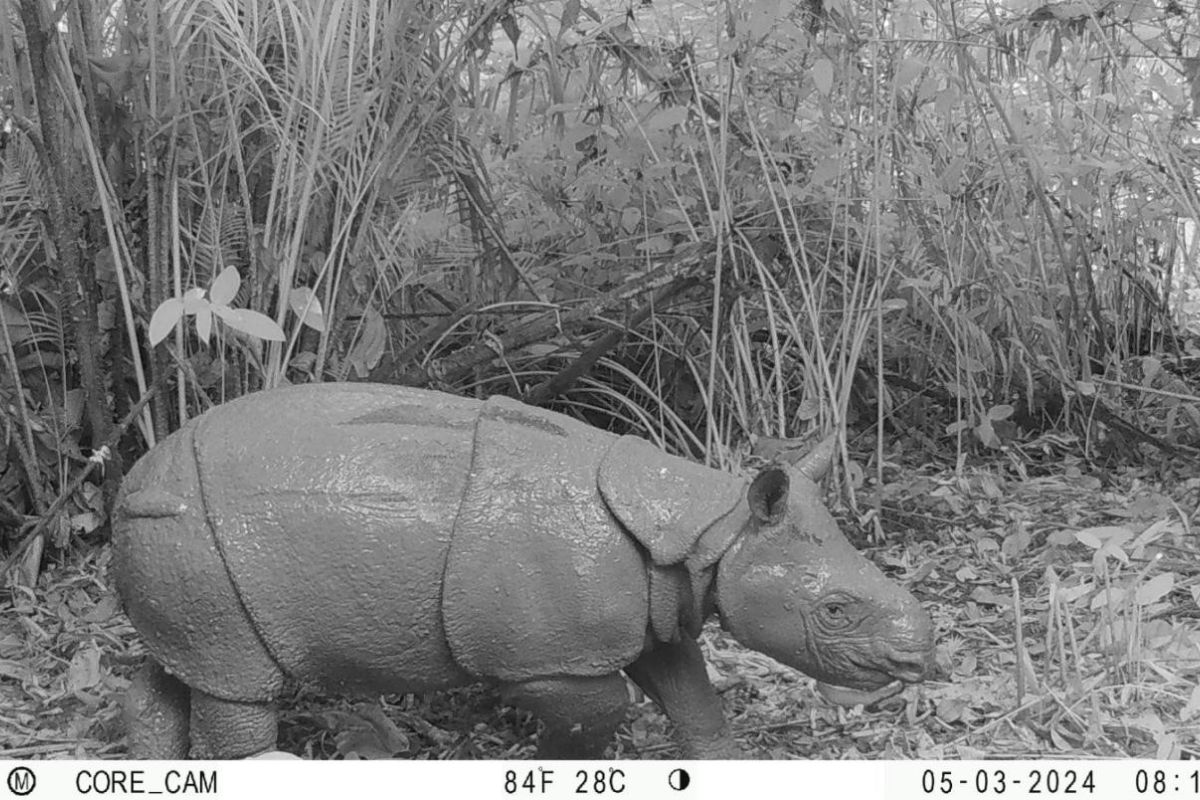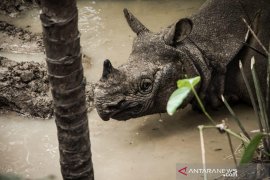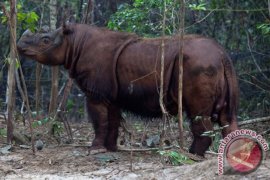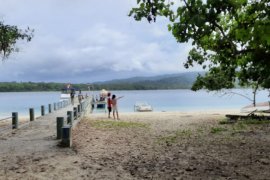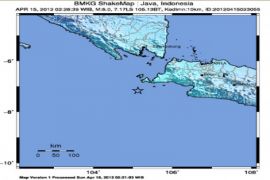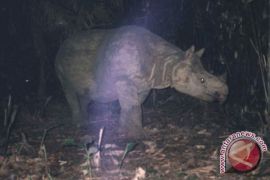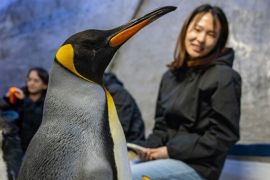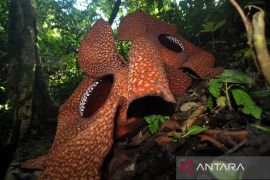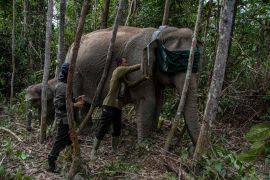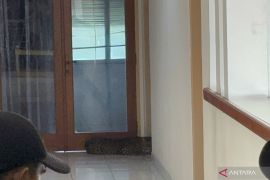In the ministry's statement received here on Friday, Head of the TNUK Office, Ardi Andono, stated that the finding of the rhinoceros calf in 2024 is good news for the national park.
Nevertheless, he said that although Javan rhinoceroses can reproduce, this does not mean that they and their habitats are safe from various disturbances, such as hunting activities, predators, diseases, inbreeding, and natural disasters.
"For that reason, we and all parties who help in the Javan rhino conservation efforts must not be careless and must always anticipate any threats that may emerge," he emphasized.
Andono explained that the monitoring team managed to record the rhinoceros calf and her mother in a recording on May 7, 2024, at 5:50 a.m. local time.
Based on the team's identification, the rhinoceros calf, registered as ID.094.2024, is estimated to be aged 3 to 5 months, and there were no special characteristics on her body, thereby categorized as normal.
The rhinoceros calf was named Iris by Environment and Forestry Minister Siti Nurbaya Bakar on September 6, 2024.
It was the first time the mother, Putri, was spotted with a rhinoceros calf, which indicated that Iris was her first child.
According to Andono, the finding was owing to the efforts of the Javan rhinoceros monitoring team that worked tirelessly to find and place camera traps in the forest every month.
In addition, it was supported by the full protection area policy for the entire Javan rhinoceros habitat in the national park, which allowed the endangered species to reproduce well naturally.
Earlier, in 2022 and 2023, two new Javan rhinoceros calves were also recorded by camera traps in TNUK. Both are females, registered as ID.091.2022 and ID.092.2023.
Related news: Javan rhinos, coloring people's lives from the shadows
Related news: Pursuing harmony between humans and orangutans in Kalimantan
Translator: Prisca Triferna, Raka Adji
Editor: Aditya Eko Sigit Wicaksono
Copyright © ANTARA 2024
